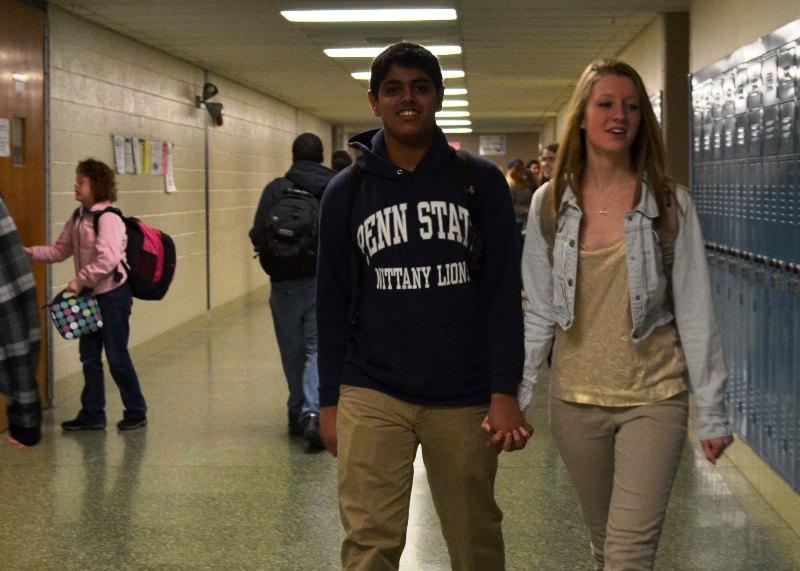Relationships are a blessing, but many times involve emotional ups and downs throughout the journey. The stereotypical high school romantic relationship is often mocked and ridiculed because of the lack of maturity level that is present in adolescence. No one will ever know what ultimatley happened to the ficticious relationships famously featured in Pretty in Pink, Sixteen Candles, and Juno, but most might believe that there aren’t always happily-ever-afters in their non-fiction futures.
But what exactly is the success rate of high school relationships?
High school can be a challenging time for any teenager, filled with personal identity struggles, peer problems, and many other issues. So when a relationship is added to that mix, it might get a little complicated.
As a guidance counselor, Dr. Nicole Yetter witnesses teenage interactions and behavior on a daily basis, and has seen many different relationships form throughout the process.
“I think it’s really just about discovering yourself; being a teenager is about meeting new people, getting involved, and every day is a new discovery. It’s challenging navigating yourself,” says Yetter.
But there are many couples who do successfully maintain their relationship all throughout high school, which is an accomplishment in itself. The next step is a little tricky. What happens after high school?
A completely different world is opened after graduation; the real one. Long gone is the structure and familiarity of North Penn. Students may be unfamiliar with going more than a few days without seeing their friends or significant others, which may pose a problem with maintaining relationships.
“Proximity and separation present a whole new issue. College is a new time of discovery, but long distance relationships can last with the best intentions. It takes mutual respect and good communication to combat some challenges. It takes some work and is a huge commitment to focus on,” said Yetter.
“We’ve had students who have made it, and there are growing pains with everything. My advice is to be happy and secure with yourself. Secondly, be with someone who is both your significant other and friend, and thirdly, be respectful; be a good listener and try to have clear communication, and be kind to one another- “fight nice”,” said Yetter with a smile.
To the surprise of some, many North Penn graduates are still maintaining their relationships, and have positive things to say about the long distance process.
Ashley Lepera, North Penn Class of 2011 aluma, and her boyfriend Robbie planned on breaking up before she left for college. They talked about other options, but before she left for school in August, they decided to continue dating. She currently attends Thomas Jefferson University and her boyfriend attends Rochester Institute of Technology.
“The biggest thing Robbie and I had to do was adapt to keep busy. This helped keep our minds off each other and make school work our priority. A very important thing we do that helps us stay connected is having FaceTime dates every Wednesday and Saturday,” said Lepera.
“The most difficult thing about a long distance relationship is trust. You have to trust that your boyfriend or girlfriend will remain faithful. I have seen a lot of people break up even after promising each other they wouldn’t. Long distance relationships aren’t easy, but if you are really in love they are so worth it,” said Lepera.
Kira Farrell and Ray Gerhart, members of NP Class of 2012, have been dating for four years. Gerhart currently attends Temple University and Farrell attends Pennsylvania State University.
“We did break up during the summer for a few months, but we realized that we were both better off and happier together, and that it was worth the distance,” said Farrell.
Although it is a lot of work for two college freshman, they are dealing with the distance and making it work.
“Talking and visiting each other often helps with being separate. There is more to talk about because two different schools means two different experiences and groups of friends,” said Gerhart.
Keeping in mind that every person and every relationship is different, there may be more than what meets the eye regarding high school relationships. Dr. Yetter’s words prove important advice for anyone, high school student or not.
“Don’t limit yourself,” added Yetter, “you should be in a relationship if it’s what you want and is the best thing for you.”

